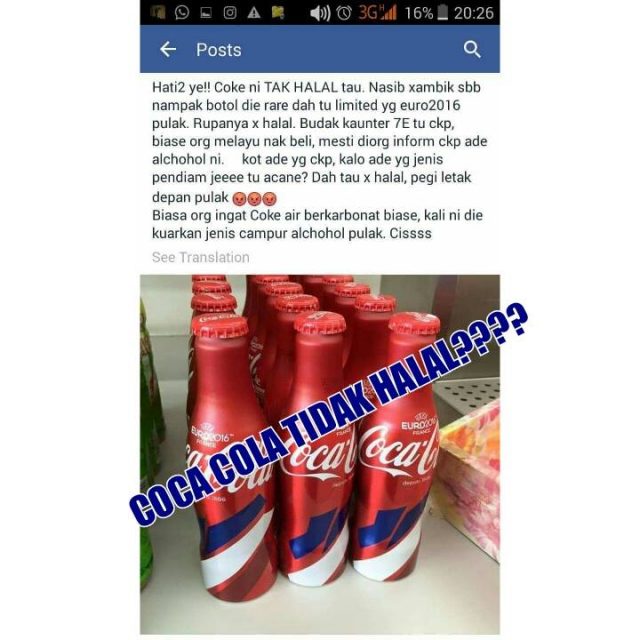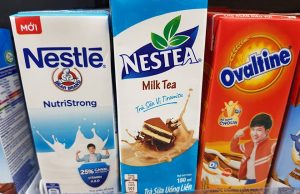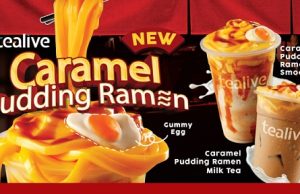Coca-Cola Malaysia is haunted by a serious allegation that its Euro 2016 collectible aluminium bottles are not halal and contain alcohol. The allegation circulated via social media claims the imported Coca-Cola from Europe has alcohol and is not halal. This is serious allegation especially during the holy month of Ramadan.
Jakim says
According to investigation by the Department of Islamic Development Malaysia (JAKIM), the country’s sole halal certifying body, the Coca-Cola is deemed to be made in Europe and does not come with any halal logo or own any halal logo recognised by the halal apex body. It also stressed that The Coca-Cola Company has issued clarification on its corporate website denying the limited-edition drink contains alcohol. In the Facebook post dated 23 June 2016, JAKIM assured consumers all the Coca-Cola products bottled in Malaysia are certified halal and safe to consume.
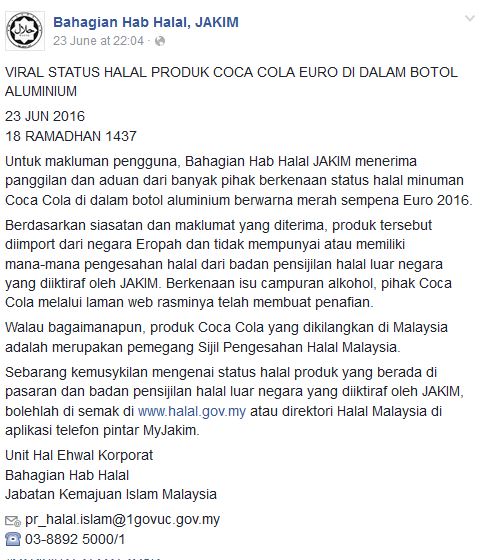
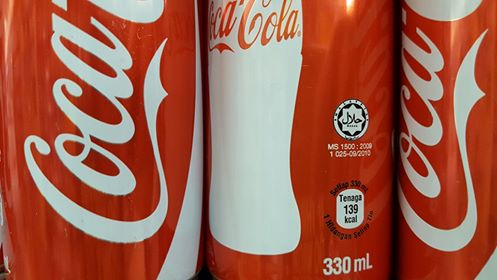
In one of the replies to a message left on JAKIM’s Facebook page, the religious body said ‘the only issue with the product is it does not have the halal certification from overseas and a product cannot be punished unless it has banned ingredients.’ It reiterated consumers can choose to drink locally-bottled Coca-Cola as the local factory has been certified halal.
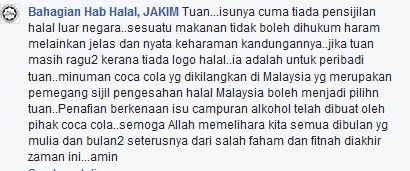
Coca-Cola explains
The Coca-Cola Co promptly issued an official reply assuring Malaysian consumers ‘the ingredients and manufacturing process used in the production of Coca-Cola beverage are rigorously regulated by government and health authorities in more than 200 countries which have consistently recognised the drink as a non-alcoholic product.’ The company strengthened this assertion by claiming ‘this includes countries where Islam is the major religion.’
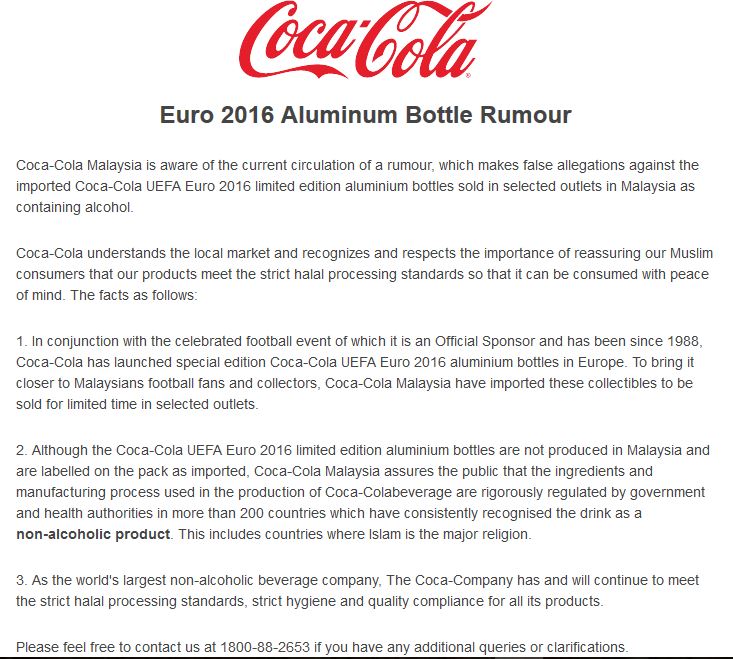
The official statement claims ‘The Coca-Company has and will continue to meet the strict halal processing standards, strict hygiene and quality compliance for all its products.’
Missing halal logo
The whole key issue boils down to one thing – the missing halal logo. Can an ‘organic’ product claims it is organic without the accompanying ‘organic’ label? The same logic applies to the Coca-Cola issue.
Malaysian consumers have been educated to place their faith on the halal logo. If the limited-edition comes with the halal logo, this incident would not have happened in the first place.
Confusion continues
Is the limited-edition Coca-Cola aluminium bottle halal? Apparently no, according to 7-Eleven. This was spotted by the author in one of the 7-Elevens in the town of Bentong in Pahang. So the confusion continues.

One key takeaway from the limited-edition Coca-Cola Euro 2016 halal debacle is there can be no compromise on the use of the halal logo. This applies even more importantly on imported products even if they are only available for a limited period only.

